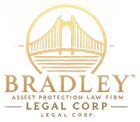Understanding the Implications of Asset Protection: The Solow Case
Asset Protection Issue: What Happens If the Planning Works, But the Facts Are Very Bad?
In the intricate realm of asset protection, a striking case illustrates how well-intentioned strategies can backfire when faced with challenging circumstances. The case of Mrs. Solow offers a cautionary tale about the risks of proactive asset protection planning following a significant legal judgment.
Case Summary
In 2010, Mrs. Solow established an offshore asset protection trust shortly after learning that her husband, Mr. Solow, was facing a substantial judgment from the SEC related to his separate business activities. Concerned about the potential implications for her family’s assets, she funded the trust with their Florida home valued at $6 million, which was held in Tenancy By the Entirety (TBE) with her husband.
TBE is a strong form of asset protection because it fully shields assets from the creditors of one spouse. Furthermore, Florida’s constitution provides for an unlimited homestead exemption, meaning the home was already shielded from claims against Mr. Solow. Nevertheless, Mrs. Solow was apprehensive that if she passed away, the home would transfer directly to her husband, potentially leaving it unprotected. Her primary goal was to ensure that the home would eventually pass to her children.
To achieve this, Mrs. Solow established the offshore trust, transferred the home into it, and subsequently mortgaged the house to further fund the trust. She also transferred a corporation that owned a condominium into the trust, using similar strategies of equity stripping, along with cash accounts.
Trial Result
The SEC contended that Mr. Solow’s actions constituted fraudulent conveyance due to Mrs. Solow’s transfers of assets. Mrs. Solow’s legal team argued that the home and assets were already protected, asserting that the SEC could not alter their status regarding collectibility. Thus, they claimed Mr. Solow’s consent to any transfers was irrelevant.
However, the court reached a different conclusion, ultimately ordering Mr. Solow to pay $3.4 million to the court. When he failed to make the payment, he claimed inability to comply due to the assets being housed in his wife’s trust. The court found Mr. Solow in contempt, stating:
“Therefore, to effect these transfers of assets from Mr. and Mrs. Solow’s accounts held as tenancy by entirety or real property held as tenancy by entirety, Mr. Solow would have to consent. Such self-created penury does not exempt Mr. Solow from being held in contempt by this court.”
[Link to Case Docket] https://www.sec.gov/litigation/litreleases/2010/lr21382.htm
Asset Protection Summary
The irony in the Solow case is profound. Had the Solows chosen not to act, many of the assets held in TBE would likely have been exempt from the SEC’s claims. The home, being their most significant asset, would have been especially secure. While there was a possibility that the condominium and cash accounts could have been targeted, the TBE significantly bolstered their defenses, maintaining a strong argument for exemption.
However, the “flurry of financial activity” shortly after the SEC judgment cast suspicion on the legitimacy of their actions. This series of rapid transfers undermined the protection they sought to achieve, ultimately leading to a court ruling that emphasized the importance of acting within the bounds of legal strategies rather than resorting to potentially perceived evasive maneuvers.
Conclusion
The Solow case serves as a reminder of the complexities entwined with asset protection. Proactively structuring your assets can be beneficial, but if done in haste or with the wrong intentions, it can lead to unintended consequences. Working with experienced legal counsel is essential in navigating asset protection strategies to ensure they are effective and resilient against scrutiny. If you’re considering strengthening your asset protection, contact our law firm for personalized advice tailored to your situation.




